In "The Vocation of the Scholar," Johann Gottlieb Fichte presents a profound exploration of the role and responsibilities of intellectuals within society. Written in the early 19th century during a period marked by rapid social and political change, Fichte's work blends philosophical inquiry with a passionate call for self-realization and moral duty. His straightforward yet evocative literary style emphasizes the necessity of striving for truth and understanding as a means to elevate both the individual and the collective. The work is deeply rooted in German Idealism, positing that the scholar's vocation is more than mere academic pursuit; it is an ethical obligation to apply knowledge for the betterment of humanity. Fichte, a key figure in the development of German philosophy, was greatly influenced by the tumultuous events of his time, including the Enlightenment and the upheaval of the Napoleonic Wars. His commitment to education and intellectual integrity emerged from his own experiences as a teacher and philosopher. Fichte's philosophies on self-consciousness and the dynamic interplay between the individual and society shaped his views on the transformative power of scholarship and its potential to foster social change. This book is an essential read for anyone interested in the intersection of philosophy, education, and societal progress. Fichte's insights into the moral imperatives of the scholar resonate powerfully in today's world, offering readers a reflective lens through which to view their own roles as knowledge seekers. Engaging with Fichte's arguments will undoubtedly inspire contemporary scholars and educators to consider their own responsibilities toward society.
The Vocation of the Scholar
Commencez ce livre dès aujourd’hui pour 0 €
- Accédez à tous les livres de l'app pendant la période d'essai
- Sans engagement, annulez à tout moment
Auteur(e) :
Langue :
anglais
Format :

50 Meisterwerke der Philosophie : Metaphysik, Das Gastmahl, Bhagavadgita, Tractatus logico-philosophicus, Kritik der reinen Vernunft, Also sprach Zarathustra, Selbstbetrachtungen von Marcus Aurelius
Ludwig Wittgenstein, Edmund Husserl, Karl Marx, Søren Kierkegaard, Friedrich Nietzsche, Ralph Waldo Emerson, John Stuart Mill, Georg Wilhelm Friedrich Hegel, Friedrich Schelling, Johann Gottlieb Fichte, Immanuel Kant, John Locke, Montesquieu, Jean-Jacques Rousseau, David Hume, Gottfried Wilhelm Leibniz, Baruch Spinoza, - Konfuzius, Lao Tse, Platon, Xenophon, - Aristoteles, Marcus Tullius Cicero, Seneca, Epiktet, Marc Aurel, Plotin, Thomas von Aquin, Nicolaus von Cues, - Erasmus von Rotterdam, Niccolò Machiavelli, Tommaso Campanella, Martin Luther, Giordano Bruno, Samuel von Pufendorf, Abbé Castel de Saint-Pierre, Michel de Montaigne, René Descartes, Francis Bacon, Blaise Pascal

Reden an die deutsche Nation
Johann Gottlieb Fichte
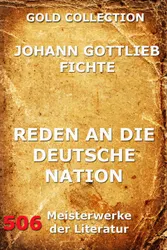
Reden an die deutsche Nation
Johann Gottlieb Fichte
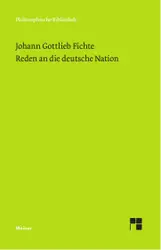
Reden an die deutsche Nation
Johann Gottlieb Fichte
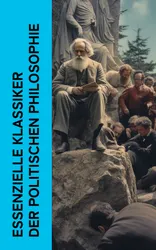
Essenzielle Klassiker der politischen Philosophie : Der Staat, Der Gesellschaftsvertrag, Der Fürst, Utopia, Manifest der Kommunistischen Partei, Geschichte der Socialdemokratie
Niccolò Machiavelli, Montesquieu, Friedrich der Große, Platon, - Aristoteles, Marcus Tullius Cicero, Tommaso Campanella, Thomas Morus, Samuel von Pufendorf, Abbé Castel de Saint-Pierre, Jean-Jacques Rousseau, Immanuel Kant, Johann Gottlieb Fichte, Karl Marx, Friedrich Engels, Wilhelm von Humboldt, Friedrich Christoph Dahlmann, Franz Mehring, Johann Most, John Henry Mackay, Rosa Luxemburg, Erich Mühsam
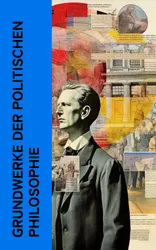
Grundwerke der politischen Philosophie : Der Staat, Der Gesellschaftsvertrag, Der Fürst, Utopia, Manifest der Kommunistischen Partei, Geschichte der Socialdemokratie, Parlamentarischer Kretenismus
Platon, - Aristoteles, Marcus Tullius Cicero, Niccolò Machiavelli, Tommaso Campanella, Thomas Morus, Samuel von Pufendorf, Abbé Castel de Saint-Pierre, Jean-Jacques Rousseau, Montesquieu, Immanuel Kant, Friedrich der Große, Johann Gottlieb Fichte, Karl Marx, Friedrich Engels, Wilhelm von Humboldt, Friedrich Christoph Dahlmann, Franz Mehring, Johann Most, John Henry Mackay, Rosa Luxemburg, Erich Mühsam
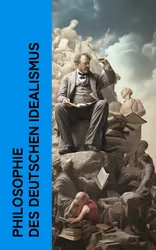
Philosophie des Deutschen Idealismus : Die Quelle der ewigen Wahrheiten, Kritik der reinen Vernunft, Wissenschaft der Logik, Grundlage der gesamten Wissenschaftslehre
Georg Wilhelm Hegel, Johann Gottlieb Fichte, Immanuel Kant, Friedrich Schelling, Friedrich Schleiermacher
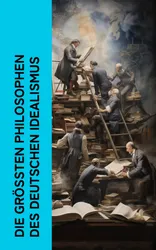
Die größten Philosophen des Deutschen Idealismus : Die wichtigsten Werke von Kant, Hegel, Schelling, Jacobi, Fichte und Schleiermacher
Immanuel Kant, Johann Gottlieb Fichte, Georg Wilhelm Hegel, Friedrich Schelling, Friedrich Schleiermacher

Grundlage der gesamten Wissenschaftslehre (Alle 3 Bände) : Der Grund der Selbsterkenntnis und Gotteserkenntnis (Eines der zentralen Werke im nachkantischen Idealismus)
Johann Gottlieb Fichte

The Vocation of the Scholar
Johann Gottlieb Fichte

Facts of Consciousness
Johann Gottlieb Fichte

The Vocation of Man
Johann Gottlieb Fichte
